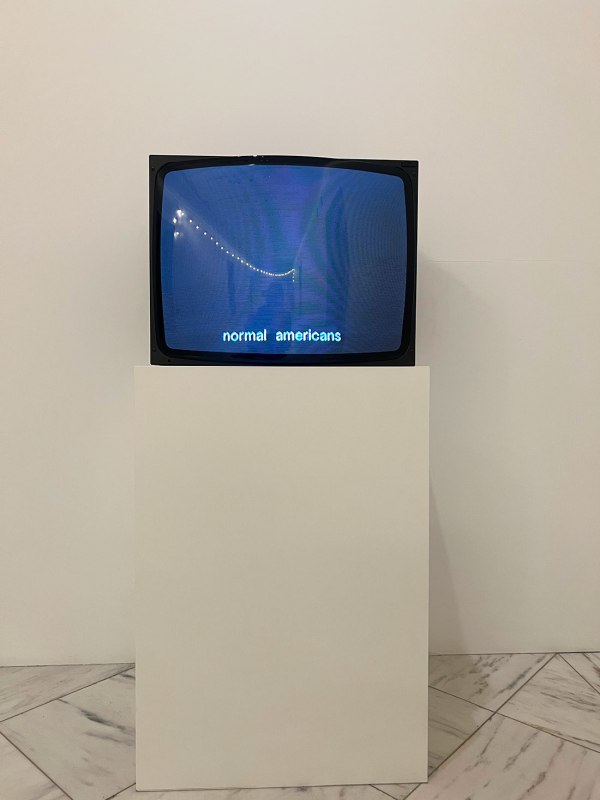Dear America,
I’m writing this letter at a desk in a corner of my bedroom—a room with light curtains. Curtains so gauzy I can see through them to white dogwood blossoms fluttering in the breeze. This room should have blackout curtains; at night, the light from street lamps seeps around the edges of the Venetian blinds. But I don’t like how heavy blackout curtains are, or that they bring to mind war.
Not that I’m not already thinking about war. Always a distant war for us Americans—a “tragedy of elsewhere” in the words of the Odesa-born American poet Ilya Kaminsky. This, in an interview about his searing book of poems Deaf Republic, which I’ve been re-reading, and in which citizens live in an unnamed country under fascism. Here we are, a mere six years after this book was published, and you—we—are fast becoming that country. We, however, are named.
These last days of April have been idyllic here in D.C. Last week I walked all the way from my home four blocks east of the Capitol to the National Portrait Gallery to see, again, Always to Return, an exhibition of works by the Cuban-born American artist Félix González-Torres (or FGT, as admirers of his work like to refer to him). His candy spills are on view, one running like a river along the base of a wall, as are two of his paper stacks and his numerous strings of light bulbs. But no curtains in this exhibit—not his beaded ones, nor the fabric ones a sheer light blue.
On this visit I sat in a molded white chair and watched and re-watched his five-minute video, “Untitled” (A Portrait). FGT began this work in 1991 and completed it in 1995, a year before his death at age 38 from causes related to AIDS. The video cycles through a series of phrases (I counted more than 40), one phrase at a time, each phrase fading out before the next one appears on the screen several seconds later. The idea is to pay attention to what immediately comes to your mind when you see the words strange music, or a new Supreme Court ruling, or a view to remember, or any of the other phrases I’ve bolded in this letter to you.


Photo by Nancy Geyer.
I first saw “Untitled” (A Portrait) years ago at a gallery in New York, but I don’t remember giving it much thought. This time I was riveted. It’s uncanny how much this work resonates today. A patriotic mob. A return. Stock market crash. The “patriotic” mob put my neighborhood on edge for days, and again during the inauguration of the new, Democratic president, when my street was blocked off by patrol cars as a precaution. As for “a return,” I doubt this meant much to me the first time I watched the video, but it sure means something now. A return that filled so many of us with dread.
Re: the stock market, I don’t look. Next phrase, please….. an environmental disaster.
You may be wondering who “Untitled” (A Portrait) is a portrait of. My guess is that it’s a portrait of whoever is sitting in the two molded plastic chairs. A self-portrait, I’m thinking—a snapshot that changes with each viewing, made up of the meanings one attaches to each of those 40+ phrases. Always the same phrases, though what they summon up is in constant flux, so that no two portraits are the same whether it’s returning people or new people sitting in those chairs.
In the aggregate, of course, “Untitled” (A Portrait) is a portrait of you, America.
Inevitably some phrases will become obsolete. A bounced check, for example, is on its way out, though the financial hardship it suggests will be around forever. When a new lesion popped up on the screen, I thought reflexively of the decade in which FGT made this work, at the peak of the AIDS epidemic. But back at home this phrase was given a new, up-to-the-minute association when I found myself watching news footage in which AIDS activists were stacking more than 200 coffins in front of the State Department—each coffin representing 100,000 patients worldwide at risk of losing their meds. At issue were cuts made to PEPFAR (the President’s Emergency Plan for AIDS Relief) and the administration’s bungling of what remains of the plan. “We could return to the darkest days of the AIDS epidemic,” a public policy advocate warned.
A white blood cell count
A shortness of breath
A night sweat
To which I’ll take the liberty of adding a word of my own, regarding those activists: heroes.
Where to begin with a hateful politician? It scrambles the mind, and too soon the next phrase comes along. But here at my desk, I have time to collect my thoughts. Two weeks ago, our self-described hillbilly vice president, believing our “globalist economy” had gotten us Americans nowhere, dismissed Chinese factory workers as peasants. Twice in one sentence.
Far worse (indeed one reaction to the above was laughter at its ridiculousness) was a calculated speech by the White House press secretary in which she reminded everyone of the Salvadoran man convicted of murdering a Maryland woman in 2023—the woman’s mother standing by the press secretary’s side as she spoke—as if this had anything to do with the Salvadoran man with no criminal history, nor charges against him, who in March was wrongly deported to a Salvadoran prison for terrorists. Ignored, of course, was due process. Also ignored, for three weeks and counting: a unanimous Supreme Court order that the administration facilitate his return.
I don’t want to end on a negative note. Neither did FGT seem to want his works to leave people feeling utterly depleted or in despair. You’re invited to enjoy his candies, after all—as many as you like—even as you ponder the losses they signify. So, in that spirit, out of the 20-something phrases left in “Untitled” (A Portrait), I give you a blue lake. It evokes beauty, serenity. It sounds eternal too, like the sky, though in fact we can’t take its longevity for granted. But remember, when you look into it, you will be reflected back.
Yours,
Nancy
Félix González-Torres: Always to Return is on view at the Smithsonian’s National Portrait Gallery and the Archives of American Art through July 6, 2025.

 Nancy Geyer’s writing can be found in journals including Alaska Quarterly Review, the Georgia Review, Gulf Coast, Hong Kong Review, the Iowa Review, and NER Digital, as well as in the anthologies Brief Encounters: A Collection of Contemporary Nonfiction (W.W. Norton) and The Poets Guide to the Birds (Anhinga Press). The recipient of a Pushcart Prize, a Peter Taylor Fellowship from the Kenyon Review Writers Workshop, and the Iowa Review Award in Nonfiction, among others, she lives in Washington, D.C.
Nancy Geyer’s writing can be found in journals including Alaska Quarterly Review, the Georgia Review, Gulf Coast, Hong Kong Review, the Iowa Review, and NER Digital, as well as in the anthologies Brief Encounters: A Collection of Contemporary Nonfiction (W.W. Norton) and The Poets Guide to the Birds (Anhinga Press). The recipient of a Pushcart Prize, a Peter Taylor Fellowship from the Kenyon Review Writers Workshop, and the Iowa Review Award in Nonfiction, among others, she lives in Washington, D.C.
Read “(Dis)Appearances” by Nancy Geyer, winner of the Terrain.org 4th Annual Contest in Nonfiction.
Read other Letters to America online or in Dear America: Letters of Hope, Habitat, Defiance, and Democracy, published in partnership with Trinity University Press.
Header photo by Bishnu Bidari, courtesy Pixabay.
